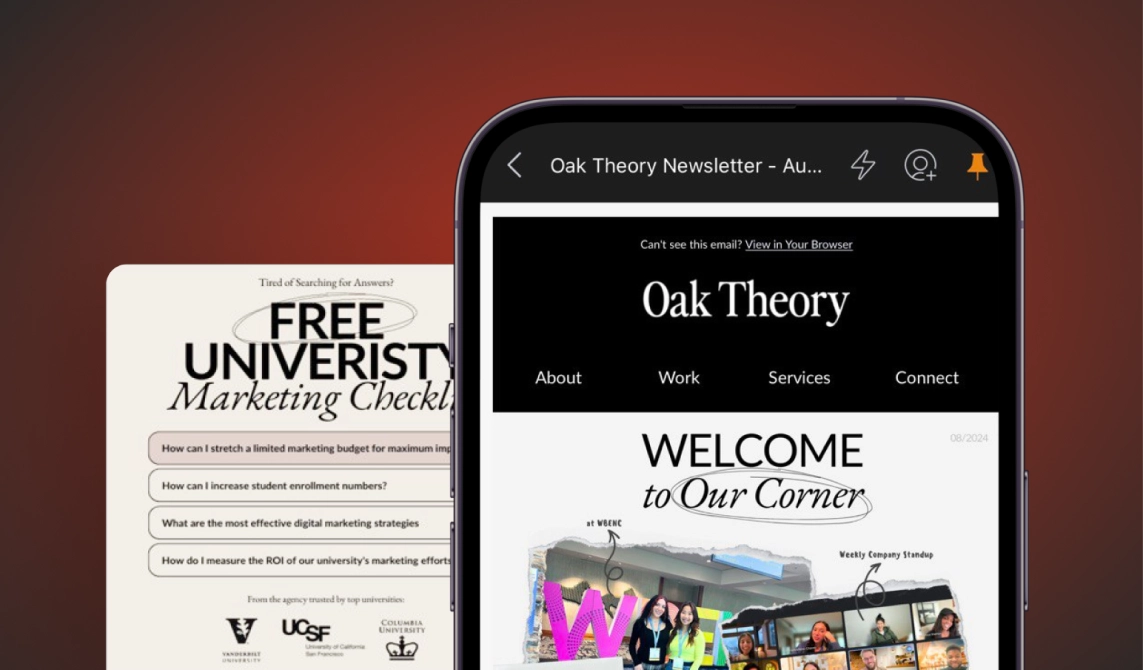In our socially conscious era, choosing a brand name demands a keen awareness of cultural sensitivity; failure to do so can swiftly derail even the most meticulously planned products. Here is our insight into how culturally diverse creative teams can make brand names blunder-free, unique, and truly expressive—and how we did it for the legendary online dating company Match Group.
Going Deeper with Culturally-Sensitive Brand Names
While memorability, versatility, and value alignment are still paramount for a well-crafted brand name, the reality is that nowadays any brand naming agency worth their salt needs to stress-test brand names and analyze them from every possible angle, from every possible perspective.
As you can guess, this is not an easy job—especially when the target audience of the brand is a particular cultural group. At Oak Theory, we pride ourselves on having a diverse creative team from various parts of the world, who can often offer projects a much-needed personal perspective from the very target audience we are looking to speak to. We have found this, as well as thorough audience research, crucial in our brand naming process—both to keep our clients away from PR disasters, and to avoid wasting time going down the wrong path.
A thorough brand naming process will save you having to change your name under public pressure—like the unfortunately titled band ‘Slaves’, the infamous ‘Plantation Rum,’ or the blatant colorism of popular beauty brand ‘Fair & Lovely.’
What Makes a Brand Name Culturally Sensitive
Navigating the intricate landscape of brand naming with cultural sensitivity demands a thoughtful approach that goes beyond the surface. Here are our top things to look out for when naming your brand or product:
- Don’t Perpetuate Stereotypes: Being conscious of current stereotypes associated with the target culture is essential to avoid perpetuating misconceptions that are not only trite, but can even be harmful.
- Study Local Beliefs and Customs: In-depth knowledge of local beliefs and customs can feel as complex as cracking some esoteric cultural code, especially when you are completely new to it. It’s crucial to take the time to immerse yourself in the culture you are looking to address.
- Recognize Historical Difficulties: Acknowledging historical challenges, particular difficulties, and vulnerabilities helps in avoiding unintentional offense or insensitivity in the brand name.
- Don’t Skip Audience Research and Sentiment Analysis: Constantly seeking feedback from diverse samples of the audience at every stage of the creative process will capture real-time audience sentiment and also help fine-tune the brand name options. Although it’s time-consuming and can get costly, you must include the audience into your feedback loop.
- Work with a Specialized Brand Naming Studio: If this all sounds like too much, putting your trust in design studios or agencies specializing in brand naming (such as us) will give you much-needed peace of mind. A diverse team within the design studio or agency is also a big bonus, as it affords you insight into aspects that your audience might not consciously be able to express otherwise.
How We Helped Match Group Speak to a Pan-Asian Audience
In a world dominated by global online dating giants like Tinder, Hinge, and Plenty of Fish, Match Group set out on a mission to create something unique—a social discovery app specifically tailored for the Asian-American population. The challenge: how to choose a brand name that will speak to this entire segment, when the cultural differences within this community can be so vast?
To keep the brand name expressive and not settle something so wide-appealing that it lost character, we had to not only find a concept that resonated with the broad spectrum of Asian cultures, but also one that acknowledged and celebrated the unique subcultures within the community.
In order to achieve this, we employed a multifaceted approach. Our contribution extended beyond conventional methods, with a unique emphasis on internal diversity—our team contained members from the very audience we were targeting, which was incredibly valuable. They played a pivotal role in selecting a brand name that was not only distinctive but emotionally resonant. Their insights ensured a profound understanding of the audience, steering clear of potential missteps or cultural mistranslations.
We prioritized cultural relevance through extensive research, surveys, and direct engagement with the target audience. Actively seeking opinions from Asian-American singles allowed us to gather invaluable insights, shaping the final brand names authentically. The resulting series of culturally sensitive names transcended linguistic barriers and considered scalability for future growth.
As with any brand name, legal considerations were paramount, and we conducted high-level trademark checks to guarantee exclusivity and shield Match Group from potential legal challenges. The chosen brand names were also designed for accessibility, ensuring ease of pronunciation and spelling for a diverse pan-Asian audience.
Future-Proof Your Brand Name
Cultural sensitivity isn’t just a checkbox; it’s a dynamic, ongoing process that requires continuous engagement, adaptation, and a commitment to authenticity. In a world where brands are judged by their ability to navigate diverse cultural landscapes, the resonance of a thoughtfully crafted, culturally sensitive name stands not just as a label, but as a mark of quality and respect for the communities they are serving. If you would like help navigating the intricate realm of brand naming with cultural sensitivity, let our diverse team amplify your brand’s resonance and impact. Get in touch with us today


